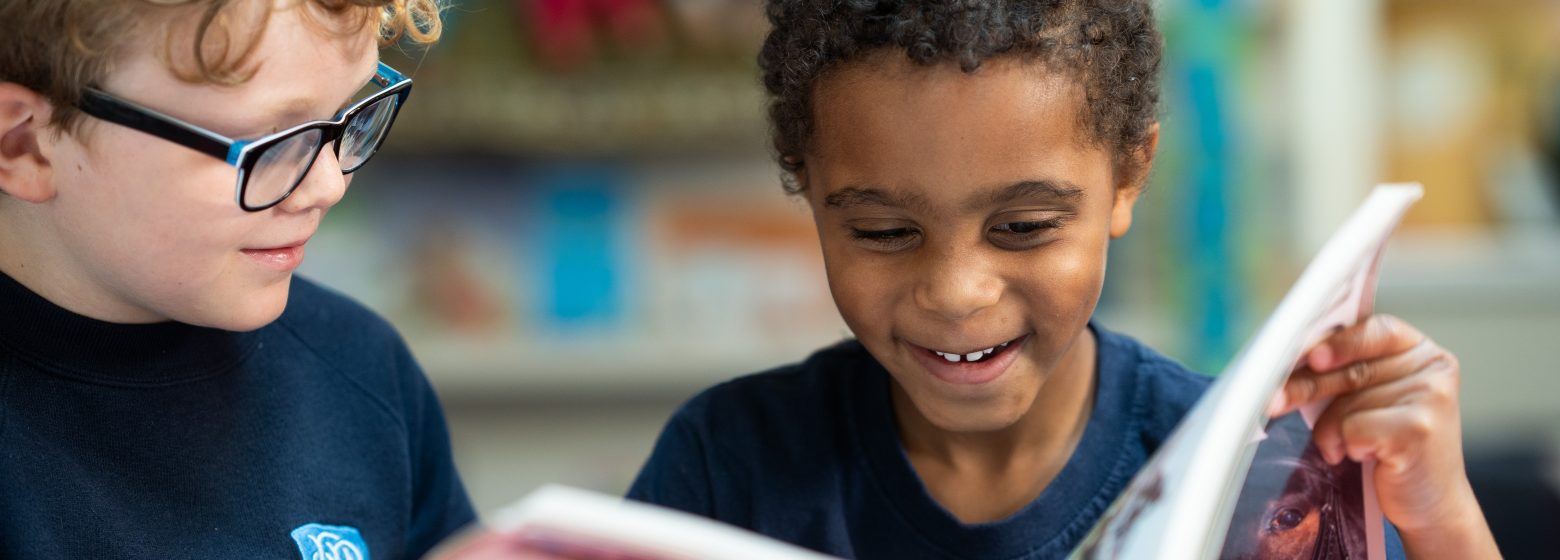Research is pretty conclusive: the experiences between the ages of two and six, both at home and in school, are crucial for predicting future academic success.
Why?
All cognitive function is dependent on the connections formed in the brain. Put simply, the neurons, or brain cells, require connections between each other, and these ‘synapse’ connections are crucial for processing. Of course, some of these connections, such as our respiratory system, begin from birth automatically, but the vast majority needs to be constructed.
These synapse connections develop rapidly. So much so that by age one, a toddler’s brain structure is closer to that of an adult’s brain (Beigi, 2021). This growth continues to the point that,
“By age two, the number of synapses reaches adult levels. By age three, the child’s brain has about 1,000 trillion synapses or about twice the number of an adult’s brain and is two and a half times more active (Shonkoff and Phillips, 2000).”
Crucially, however, these connections are formed and maintained through usage (Ryan, 2012); therefore, the assumption is that if you do not use it, you ‘lose it’ (Beigi, 2021).
As teachers, we must remember that this process of forming and maintaining connections is vitally important in the future as “higher rates of synapses (connections) to the neurons […] means more routes for higher-order cognitive functioning (Smith, 2000).” Therefore, Early Years settings and teachers have a tremendous responsibility to provide a rich and engaging environment which fosters purposeful and targeted cognitive challenge.
At this stage, it is perhaps worth pointing out that the importance placed on building formative experiences is not new, and we see this provision in some other countries. For example, in Finland, the government spends 1.1% of their GDP on Early Years provision, compared with England’s 0.7% (Sylvester, 2022). Results from the PISA study would suggest that this investment pays dividends later in education. Finland ranked higher in international rankings after combining average scores than the United Kingdom in academic performance at age 15 (OECD, 2018).
At Dulwich Prep, we are fortunate to not only value Early Years education but also invest heavily in the infrastructure to enable children to achieve their learning potential. We do this with the understanding that we want children to have the greatest number of experiences and opportunities for cognitive stretch so that the crucial connections in the brain are formed but also maintained. As the quote above from Beigi suggests, between the ages of three and adulthood, we are susceptible to ‘losing’ these connections if they are not used, and this is something we, as an Early Years setting, work hard to mitigate against as we know the value it plays later in education.
One of the ways we achieve this is by thinking carefully about how we structure our learning environment so that we can enrich our continuous provision and promote play. As Beigi (2021: 89) notes, “[…] play performs a significant role in the development of the brain, particularly in the early years,” and we try to harness this by scaffolding play in and outside of the classroom. However, we also complement this with direct instruction, where children are challenged and stretched with their learning in an environment that is both ‘safe to fail’ and enjoyable.
Ultimately, our view is that we shoulder a ‘tremendous’ responsibility to get our Early Years education ‘right’ for young children. Crucially, however, it should not feel like ‘tremendous’ effort if done’ right’. Learning should be organic, unpressured and, most of all, fun!
Dr Christopher Halls, Head of Early Years
Bibliography
- Beigi, R. (2021). Early Years Pedagogy in Practice: A guide for Students and Practitioners. London: Routledge.
- James, F. (2022). EEF blog: What happens early can matter for a lifetime. Available at: https://educationendowmentfoundation.org.uk/news/eef-blog-what-happens-early-can-matter-for-a-lifetime. Last accessed 20.07.2022.
- OECD. (2018). OECD PISA Study. Available at: https://www.oecd.org/pisa/. Last accessed 27.09.2022.
- O’Sullivan, J. (2015). Successful Leadership in the Early Years. London: Bloomsbury.
- Ryan, W. (2012). Leadership with a Moral Purpose: Turning your School Inside Out. Wales: Crown House Publishing Ltd.
- Shonkoff, J. and Phillips, A. (2000). From Neurons to Neighborhoods: The Science of Early Childhood Development. National Academies’ Press. Available at: From Neurons to Neighborhoods: The Science of Early Childhood Development |The National Academies Press. Last accessed 22.09.2022.
- Smith, A. (200). Accelerated Learning in Practice. London: Bloomsbury.
- Sylvester, R. (2022). How to teach a Toddler, The Scandi Way. The Sunday Times Magazine, 05.03.22, pp.16-23.



